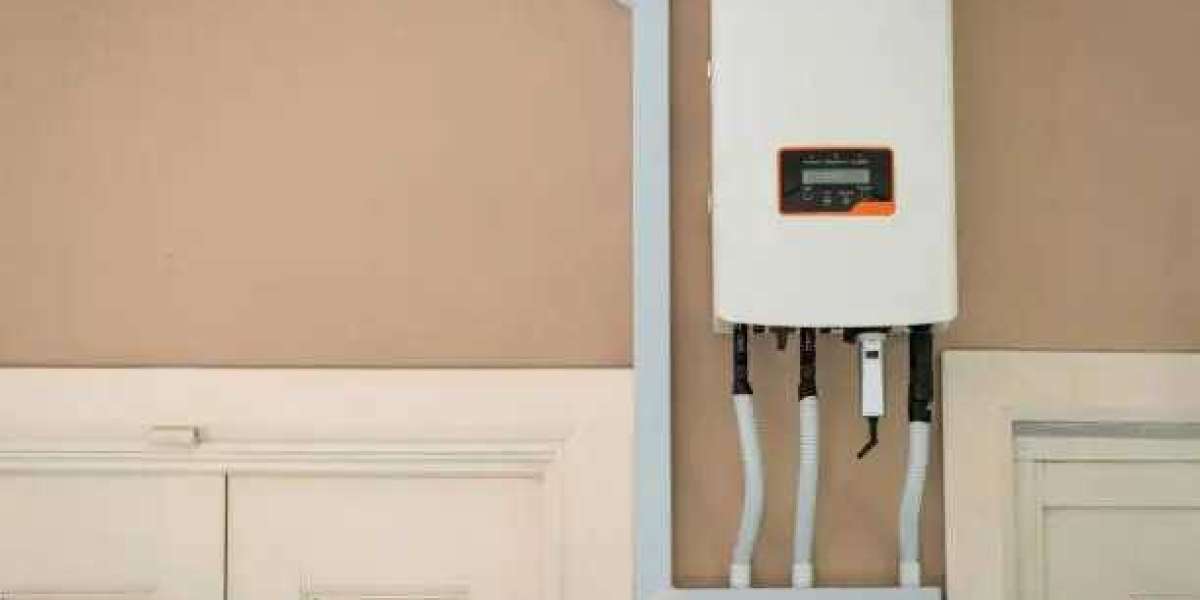As more people look for sustainable energy solutions, solar energy systems have become a popular choice for homeowners and businesses alike. Central to these systems are inverters, which convert the energy generated by solar panels into usable electricity. Among the various types of inverters available, off grid inverters and hybrid inverters are two of the most common. In this article, we will explore the differences between off grid inverter vs hybrid inverter, their advantages, and potential drawbacks, so you can make an informed decision about which system suits your needs.
Understanding Off Grid and Hybrid Inverter Systems
Before diving into the pros and cons, it's important to understand what makes each type of inverter system unique.
What is an Off Grid Inverter?
An off grid inverter is part of a completely independent solar energy system. It is used in off grid solar systems, where there is no connection to the national electricity grid. These systems are designed to store solar energy in batteries, ensuring that you have power when the sun isn't shining. The off grid inverter converts the direct current (DC) electricity produced by the solar panels into alternating current (AC), which is used to power appliances in your home or business.
What is a Hybrid Inverter?
A hybrid inverter, on the other hand, is used in a grid-tied solar system that can both store excess energy in batteries and feed it back into the national grid. This system allows you to use energy from your solar panels during the day and store any surplus for use at night or during periods of low sunlight. It also has the ability to pull power from the grid when needed. The hybrid inverter combines the functionality of both a standard grid-tied inverter and a battery inverter.
Key Differences Between Off Grid Inverters and Hybrid Inverters
Understanding the core differences between off grid inverter vs hybrid inverter will help you determine which system is best for your energy needs.
1. Grid Connection
- Off Grid Inverters: These systems are completely independent of the national power grid. They are ideal for remote locations where electricity supply from the grid is unavailable. Off grid systems rely on battery storage to ensure power availability 24/7.
- Hybrid Inverters: Hybrid systems are connected to the grid, but they also have the ability to store excess solar energy in batteries. This dual functionality allows you to use solar power whenever possible while still having access to the grid when needed.
2. Battery Storage
- Off Grid Inverters: Off grid systems are entirely reliant on battery storage for energy. Without a battery, the system will not work, as there is no connection to the grid for backup.
- Hybrid Inverters: Hybrid systems also rely on batteries for storing energy, but they don’t require as much storage as an off grid system. Hybrid systems have the option to pull from the grid if the batteries are low or if extra power is needed.
3. Energy Independence
- Off Grid Inverters: Off grid systems offer full energy independence. You are no longer dependent on the national power grid or utility companies, making them an excellent choice for areas with unreliable or no grid power.
- Hybrid Inverters: While hybrid systems offer energy independence to an extent, they still rely on the national grid. If your batteries run out of power and the sun is not shining, you will need to draw power from the grid.
4. Cost
- Off Grid Inverters: Generally, off grid systems tend to be more expensive than hybrid systems because they require a larger battery bank and more equipment to maintain energy independence.
- Hybrid Inverters: Hybrid systems can be less costly initially, but the cost of the batteries and the system’s installation can add up over time. However, the ability to feed energy back into the grid could offset some of these costs through credits or payments from your utility company.
Pros and Cons of Off Grid Inverter Systems
Pros
- Energy Independence: Off grid systems provide complete energy independence. They are ideal for rural or remote locations where grid access is not possible or reliable.
- Environmentally Friendly: By relying on solar power, off grid systems reduce your carbon footprint and reliance on fossil fuels.
- No Monthly Utility Bills: Since you are not connected to the grid, you will not have to pay electricity bills. The energy you generate and store is yours to use freely.
Cons
- High Initial Costs: Off grid systems require significant upfront investment, particularly for the solar panels, inverter, and batteries. This may make it less attractive for homeowners on a budget.
- Limited Power Supply: If your solar panels do not generate enough energy to meet your needs, you may run into power shortages. Battery storage may not always be enough to provide power during cloudy days or at night.
- Maintenance: Off grid systems require regular maintenance to ensure the batteries and solar panels are functioning properly. If the system breaks down, you will not have access to backup power from the grid.
Pros and Cons of Hybrid Inverter Systems
Pros
- Flexibility: Hybrid systems offer the flexibility of drawing power from both the solar panels and the grid. If your batteries are full, you can feed excess energy back into the grid and earn credits or payments from the utility company.
- Lower Initial Investment: Hybrid inverters tend to have a lower initial investment compared to off grid systems because they do not require as much battery storage.
- Backup Power: Hybrid systems can continue to power your home or business using solar energy stored in the batteries, and you can switch to the grid when necessary. This ensures a more consistent power supply.
Cons
- Grid Dependency: While hybrid systems offer a degree of energy independence, they still rely on the national power grid when battery storage is insufficient.
- Ongoing Utility Costs: You will still have to pay utility bills when the system pulls power from the grid, which could reduce the savings you might otherwise enjoy from solar energy.
- Battery Lifespan: While hybrid systems can store energy, the batteries have a limited lifespan and will need to be replaced after several years of use, adding to the long-term cost.
Key Factors to Consider When Choosing Between Off Grid and Hybrid Inverters
When deciding between off grid inverter vs hybrid inverter, there are several important factors to consider.
1. Location
If you live in a remote location with no reliable access to the national grid, an off grid system is likely your best option. On the other hand, if you have access to the grid and want to ensure a backup supply when needed, a hybrid system might be more suitable.
2. Energy Consumption
If your energy consumption is low and predictable, an off grid system may work well. However, if your consumption varies or if you want the flexibility to rely on grid power when necessary, a hybrid inverter system could be a better fit.
3. Budget
Off grid systems tend to be more expensive upfront due to the need for larger battery storage, but they eliminate the need for grid connection fees. Hybrid systems, while more affordable initially, still require ongoing payments for grid electricity usage.
4. Environmental Goals
If your primary goal is to become fully energy independent and minimize your reliance on fossil fuels, an off grid system is the way to go. Hybrid systems are still a great sustainable option, but they do not offer complete energy independence.
Exploring the Future of Solar Inverter Technology
As solar technology continues to evolve, the boundaries between off grid and hybrid systems may become less distinct. Innovations in battery technology and more efficient solar panels are likely to drive changes in the way both types of systems operate. With advancements in AI and data analytics, the future of solar energy looks promising, offering even greater flexibility and control over power generation and consumption.
DSG Energy is transforming Pakistan's energy landscape by promoting sustainable and innovative energy solutions. With a strong focus on renewable energy, they are leading the way with cutting-edge Grid Tied Solar System installations. As the world increasingly relies on AI-powered analytics to optimize energy use, DSG Energy is dedicated to not only reducing energy consumption but also enhancing grid reliability and reducing dependence on foreign energy sources. Their commitment to energy efficiency aligns with the growing need for smart, data-driven solutions in the energy sector, ensuring a brighter and more sustainable future.
Final Thoughts: Choosing the Right Inverter System for Your Needs
In summary, when choosing between off grid inverter vs hybrid inverter, it’s essential to consider factors such as location, energy consumption, and your budget. While off grid systems offer complete energy independence, they come with higher initial costs and maintenance requirements. Hybrid systems provide a balance between solar energy independence and grid reliability, making them an ideal choice for many homeowners.
Ultimately, the decision depends on your specific needs and goals. Both off grid and hybrid inverters have their pros and cons, but with the right system in place, you can enjoy the benefits of solar energy while minimizing your environmental impact and energy costs.


